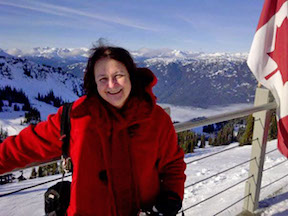What seems unusual about Strachey’s biographical style? What are some of its features? What are its advantages and limitations?
--use of humor, sarcasm, distancing irony, metaphor
How does Strachey obtain his humorous effects?
Against what modes of biography is Strachey reacting? (hagiography, focus solely on the public or external life—Strachey seeks to understand psychological motivation)
What are some limitations of this approach?
--By inverting hagiography, as it were, simplifies complexities of work and motivation
--not developmental, fails to attempt to explain origins of personality
--political and ideological disagreements couched as personal attacks
Do you agree with Strachey’s claim that autobiographies should be short?
Are there ways in which these essays might be interpreted as autobiographical? (Strachey shaped by a culture defined by religious, military, and educational institutions which he found narrow; in the case of Nightingale, Strachey is more ambivalent, but dislikes the sentimental mythology which has replaced her actual persona.)
1. Florence Nightingale:
What are the chief targets of Strachey’s iconoclasm in this essay? To what degree is he sympathetic to Nightingale?
Against what received view of Nightingale is his essay directed?
How does he portray what he sees as overly intense or neurotic features of Florence Nightingale’s behavior? 136-37, 191
--paranoia 154
--demandingness, need for authority, 157
--pride, 193
What aspects of Victorian culture does he condemn?
--myth of the Victorian lady, undercut by her actual behavior, 151
--attacks Victorian public opinion, heedless stupidity of bureaucracy, official smugness
--sentiment toward Queen, her vanity
--her religious interests, functionaries of the day
What methods does Strachey use to build sympathy for Nightingale?
What aims does Strachey propose in the preface to this volume? Does he accomplish his goals in the Nightingale essay?
Is Strachey concerned in this essay with the reversal of sex roles? 168 With a kind of latent anti-feminism in Nightingale – contempt for many of her fellow women? 182 Might the latter have had social origins, i. e., in identification with those in authority? What is Strachey’s attitude toward all this?
Modern medical historians have suggested that to some degree proclaimed illness might have enabled eminent Victorians such as Darwin and Florence Nightingale to be freed of social obligations to concentrate on their work. Does Strachey anticipate such an interpretation of her illness as psycho-neurotic? 185, "Her illness. . . not inconvenient."
How does Strachey treat the question of Nightingale’s response to sex and marriage? 136 (believes she loved Milnes but not Nicholson)
Is Strachey fair in attacking her for a lack of skill at generalization and scientific knowledge? 189 (has trained herself to disbelieve others—some education in medicine would have helped)
What attitude toward her was expressed by Carlyle? (manifests singular lack of pity)
How does Strachey’s view of religion affect the essay? (hostile, distorts chronology, 187)
Does Strachey give convincing evidence of Nightingale’s final decline into benevolent senility? (Strachey is unusual in emphasizing this)
What is the tone of the essay’s ending?
What is his final assessment of her life? What qualities in her does he most respect? (sympathetic to her work, hostile to her religion, neutral towards her introspective intensity)
Are there elements of Nightingale’s character or achievements which Strachey has downplayed? What opinions do modern historians/feminists hold on her character and claims?
By contrast, unlike Strachey the standard Victorian biography, E. T. Cook’s The Life of Florence Nightingale (1913), does not see Nightingale as responsible for the deaths of Sidney Herbert and Clough, and instead emphasizes her grief over their loss. Also Cook passes quickly over her later senility. He is at times a little troubled by her aggressiveness of expression.
2. Dr. Arnold
Why would Arnold have seemed an appropriate subject for reevaluation? (honored for his role as headmaster of Rugby, as presented in Thomas Hughes’ hagiographic Tom Brown’s School Days)
How is the sequence of narration designed to affect our opinion?
To what extent does this portrait resemble the others in Strachey’s volume?
What are Strachey’s charges against Dr. Arnold? Are his methods of argument and conclusions fair? (avoids placing Arnold’s views in context of those of others of his time)
3. Cardinal Manning
How does the tone of the Nightingale biography differ from that of Cardinal Manning?
Why do you think Cardinal Manning was chosen as a representative “eminent Victorian,” rather than, say, an Anglican archbishop? (Catholicism an important strand in late Victorian intellectual life, with several distinguished converts.)
What are Strachey’s charges against Cardinal Manning and how are they substantiated?
--psychosomatic illness
--harshness of middle years and genial kindness of senility—a common enough pattern
--presents his life as a movement form administration to religion, seems inaccurate
Do you feel his methods of assessing Manning are fair?
Does the essay increase in dramatic intensity as it progresses? (narrows to a battle between Newman and Manning)
Why of these two would Strachey have preferred Newman? (major intellectual figure of his day, less narrow in his interests)
4. General Gordon
What is Strachey’s attitude toward General Gordon? (brash adventurer determined to lead his country into another imperial conquest)
What would have been the conventional view of him? (a courageous hero who died for his country—e. g., Tennyson wrote a poem on his death)
